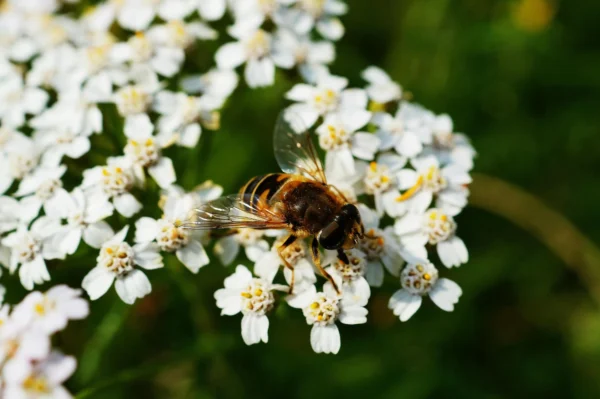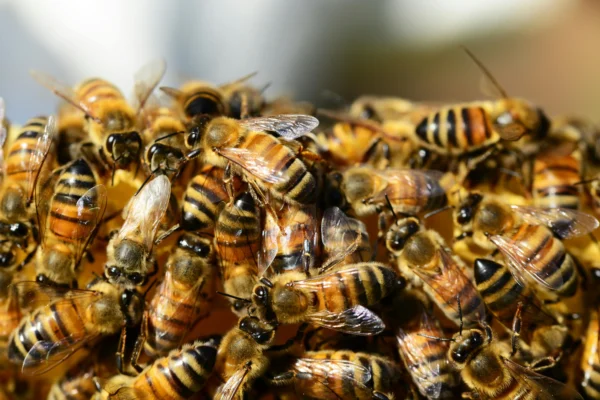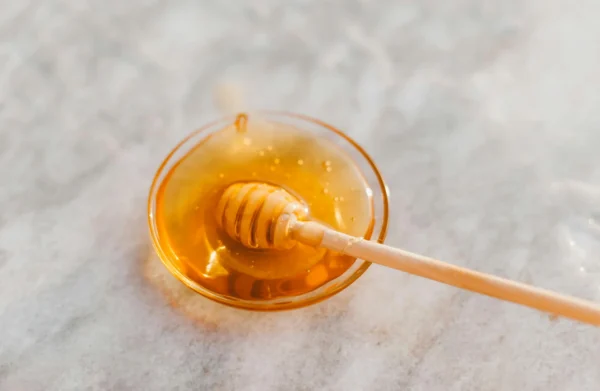With allergy season upon us, many people will be spending the next month downing antihistamines to help with the next bout of hay fever. Others may turn to nature. It is a common belief that eating local honey can cure pollen allergies.
Here’s why that may or may not be true, as well as other studies on the benefits of honey.
Does Eating Local Honey Help with Pollen Allergies?
The idea behind eating honey for allergies is that if you get little bits of pollen in your system, your body will slowly build up an immunity to it. Local honey means local pollen. Local bees will bring pollen from their yard, their neighbor’s yard and the field a few blocks away — the same stuff that’s making you sneeze. That’s the idea, anyway.
Does it work? Maybe a little bit.
The truth is, there are differing results. Three studies have shown the effect of eating honey on pollen-related allergies. Two of them showed no significant results.
The final study, done specifically on allergic rhinitis, or hay fever, in 2013 showed significant results in addition to medicine, then for a month without it. Nose itchiness and sneezing seemed to be the most improved symptoms.

Many doctors are still skeptical of local honey’s benefits. Allergist Neeta Ogden told WebMD that she never recommends eating raw local honey to her patients. “Someone may be allergic to it and not even know,” she said. “I worry about local honey that hasn’t been processed or tested.”
She added that those allergic to bees should avoid eating unprocessed honey that may have bee parts in it. Children under the age of one should not have honey either.
Ogden also had her doubts about whether local honey has the kind of pollen people are allergic to. While bees are attracted to brightly colored flowers, the pollen that usually gives people trouble comes from trees and grasses.
In truth, the types of pollen bees carry and how far they go to get it can vary widely. Most studies have also been sparse on these details.
Even if eating honey is shown to help with some symptoms, evidence suggests it may not work in every case. Either way, it will not make allergic symptoms completely go away.

Are There Still Benefits to Eating Local Honey?
Still, honey can have many other health benefits.
Though honey may not stop your eyes from itching, it has been shown to improve the symptoms of diseases such as diabetes, cancer and asthma. Many studies have shown benefits to using honey, both to eat and apply on skin, but the research base would still benefit from more evidence.
Honey has been shown to have antibacterial, antiviral, anti-inflammatory and antioxidant properties. These properties aid in healing wounds, preventing bacterial infections and reducing the risk of heart failures. Honey has also been shown to help push the immune system to create antibodies.
Honey can help with neurological diseases, especially in areas of the brain that influence the nervous system and memory. It has also been suggested to help with gastrointestinal diseases.
Local farmer’s markets, such as those in Escalante, Boulder and Torrey, usually have local honey for sale.
Those with allergies probably shouldn’t break up with antihistamines, but eating honey, too, could still be a healthy option.
– by Abbie Call
Feature image courtesy of Roman Odintsov.

Abbie Call – Cannonville/Kirksville, Missouri
Abbie Call is a journalist and editor at The Byway. She graduated in 2022 with a bachelor’s degree in editing and publishing from Brigham Young University. Her favorite topics to write about include anything local, Utah’s megadrought, and mental health and meaning in life. In her free time, she enjoys reading, hanging out with family, quilting and hiking.
Find Abbie on Threads @abbieb.call or contact her at abbiecall27@gmail.com.

